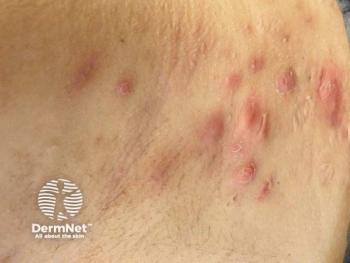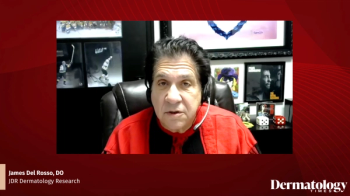
POLL: Do You Utilize Artificial Intelligence When Completing Skin Checks?
Click here to answer this week's poll.
A recent study1 published in Nature Communications delved into the role of explainable artificial intelligence, also known as XAI, in improving clinician confidence and diagnostic accuracy in melanoma detection.
The XAI, trained with annotations from dermatologists, demonstrated a significant balanced accuracy of 81% on the test set, which was greater than a ResNet50 baseline classifier by a large margin.
The XAI also demonstrated a substantial advantage over the baseline classifier, focusing on regions within the lesion with a ratio of 35.9 compared to the baseline's 4.1.
The study also assessed the overlap in ontological explanations between clinicians and the XAI, revealing an average explanation overlap of 0.46 for melanoma and 0.23 for nevus. Furthermore, the XAI's region of interest overlap with clinicians outpaced the baseline classifier.
Dermatology Times recently wrote more about this study in-depth.
Earlier this month, the
In a study of DermaSensor, the device's observed sensitivity was 95%, and its observed specificity was 32.5%.
In previous clinical trials, specifically the DERM-ASSESS III and DERM-SUCCESS studies, the equipment exhibited a 94% sensitivity in accurately categorizing 338 high-risk lesions and a 23% specificity in correctly classifying 1,681 low-risk lesions. Across 10 study sites, the device was reported to have a 96% sensitivity in detecting melanoma and a 91% sensitivity in identifying high-risk melanocytic lesions.
Do you utilize artificial intelligence when completing skin checks? We want to hear from you. Connect with our team by emailing us at
Do you utilize artificial intelligence when completing skin checks?
References
- Chanda T, Hauser K, Hobelsberger S, et al. Dermatologist-like explainable AI enhances trust and confidence in diagnosing melanoma. Nat Commun. 2024;15(1):524. Published 2024 Jan 15.
doi:10.1038/s41467-023-43095-4 - FDA clearance granted for first AI-powered medical device to detect all three common skin cancers (melanoma, basal cell carcinoma and squamous cell carcinoma). News release. DermaSensor. January 17, 2024. Accessed January 23, 2024.
https://www.dermasensor.com/fda-clearance-granted-for-first-ai-powered-medical-device-to-detect-all-three-common-skin-cancers-melanoma-basal-cell-carcinoma-and-squamous-cell-carcinoma/
Newsletter
Like what you’re reading? Subscribe to Dermatology Times for weekly updates on therapies, innovations, and real-world practice tips.










